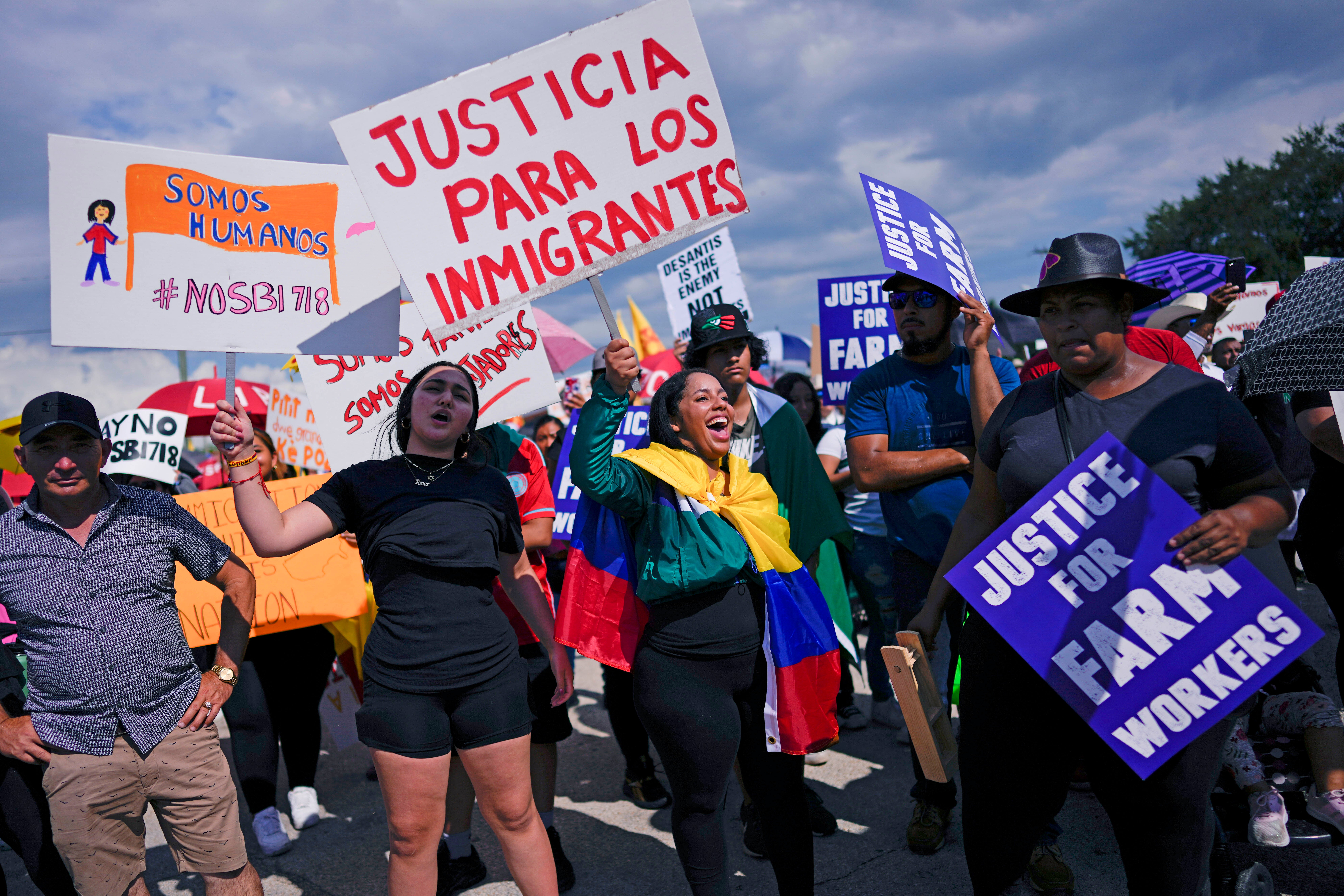Opponents hold 'day without immigrants' in Florida to protest new restrictions
Across Florida, workers didn’t show up at construction sites and tomato fields, and scores of restaurants, shops and other small businesses never opened their doors

Across Florida on Thursday, workers didn't show up at construction sites and tomato fields and scores of restaurants, shops and other small businesses never opened their doors to protest a new state law that imposes restrictions on undocumented immigrants.
Organizers dubbed the protest “a day without immigrants.”
In the Orlando area, dozens of protesters, including some driving trucks with small construction cranes, demonstrated at a busy intersection outside the office of a state lawmaker who had championed the law.
In Immokalee, an area in southwest Florida known for its tomato fields, hundreds of protesters, many with families, marched two miles around the town, chanting and carrying signs.
In Fort Lauderdale, opponents of the law chanted and waved flags outside Isis Cordova's Latin cuisine restaurant, which was closed in protest.
“I managed to get legal status in this country, and I said one day when I have documents I’m going to raise my voice. I’m also going to speak up for those people who don’t have a voice,” Cordova said. “Because I know what it’s like to be in these shoes on the other side, with that fear and living in the shadows.”
The legislation Florida Gov. Ron DeSantis signed into law last month bolsters his migrant relocation program and limits social services for immigrants lacking permanent legal status. It also expands requirements for businesses with more than 25 staffers to use E-Verify, a federal system that determines if employees can legally work in the U.S. Another provision requires hospitals that accept Medicaid to include a citizenship question on intake forms, which critics have said is intended to dissuade immigrants living in the U.S. illegally from seeking medical care.
Last month, the Latino civil rights group LULAC issued a travel advisory for Hispanics, warning that the new law marginalizes immigrant communities and was immoral. Other civil rights groups, including the NAACP and the Human Rights Campaign, also have issued travel advisories for Florida, saying new laws and policies by DeSantis and Republican lawmakers are “openly hostile toward African Americans, people of color and LGBTQ+ individuals.”
DeSantis launched a campaign for the 2024 GOP presidential nomination last week.
A spokesman for the governor's office on Thursday said the new law targets illegal immigration, not those who are in the U.S. legally.
“The media has been deliberately inaccurate about this distinction between legal and illegal immigration to create this very sort of outrage based on a false premise,” said Jeremy Redfern, press secretary for DeSantis' office. “Any business that exploits this crisis by employing illegal aliens instead of Floridians will be held accountable. Every country defends its borders with a sovereign right to do so.”
Isaac Dubon, who owns a construction business in South Florida, said immigrants are important to Florida because they do jobs that others won't.
“We work a lot in this country, 15 or 16 straight hours nonstop,” Dubon said. “We go through a lot. We pay taxes too, like everyone else, and we sustain the country’s economy.”
___
Associated Press reporter Mike Schneider in Orlando, Florida, contributed to this report.
Bookmark popover
Removed from bookmarks